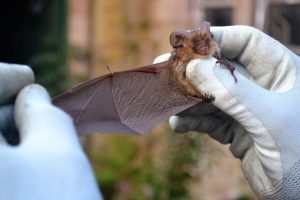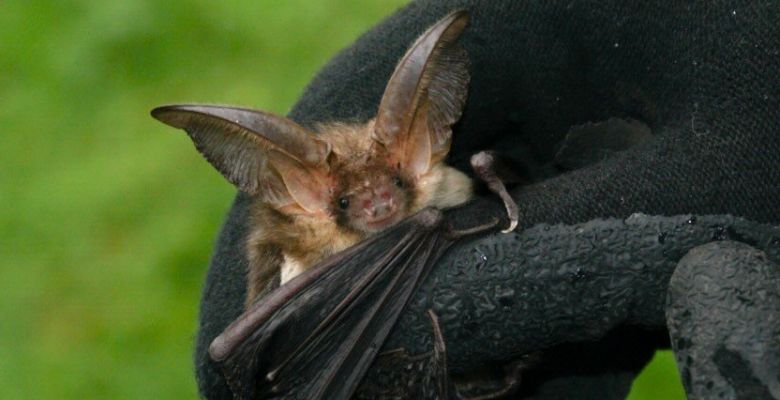Down time
Our lovely native insect managers take a well deserved rest over the winter period. Bats slow down their body functions and take to areas of cool stable temperatures to see out the winter months. During this time (usually from October to April) bats will typically move to bridges, culverts underground areas and trees to hibernate.
Why be careful?
Under EU and Irish law, bats and their roosts are protected at all times of the year. Bats are particularly vulnerable during the winter if their roost is disturbed. The body heat from one person is enough to make bats think that it is warm enough to wake up and go insect hunting. On a mild evening or night you may spot a bat or two which has woken up to replenish energy stores. However, if they are disturbed and there is no food available this can have serious consequences. It takes a lot of energy to come out of hibernation and if there is no food available bats cannot recoup the energy. This can be fatal.

What can I do?
If you think your work may include disturbance of a potential roosts over the winter EcoÉireann would be happy to have an informal chat with you about organising a professional survey. Typical hibernation roosts include tunnels, ice houses, bridges, culverts (stone), rot holes in trees, broken tree branches.
If bats are found during works it can impact a project financially through downtime and mitigation planning. It is, therefore, better to be prepared at the offset of works. “Forewarned is forearmed”!
Lead Ecologist, Maeve Riley, is a highly experienced Bat Ecologist based in Cork and holds a licence from NPWS and from Natural England to survey for bats. She is supported by her Assistant Ecologist, Eoin Cussen, and her colleagues at EcoNorth. Their professional hibernation surveys are conducted in a way that avoids disturbing and/or harming bats, in addition to pragmatic mitigation delivered in consultation with clients and national organisations. For more information, please get in touch.

